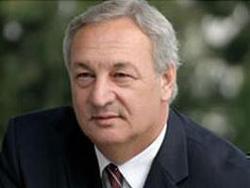The media narrative has been that small, brave and democratic Georgia has been a victim of Russia. Thie truth is that Georgia attacked South Ossetia and Russia responded. Russia is harshly criticized for human rights abuses, real or perceived. Yet, Georgia seems to have gotten a free pass on its own human rights record.
After the conflict in South Ossetia in August 2008, Human Rights Watch traveled to South Ossetia and investigated the actions of the Russian, South Ossetian and Georgian military participants. The report they compiled is at: http://www.hrw.org/en/node/79681/section/1 Human Rights Watch found that the conflict began with Georgia’s indiscriminate shelling of the South Ossetian population center, Tskhinvali. The Georgian military targeted apartment buildings, stores and at least one nursery. The hospital was under fire for over 18 hours. Homes were burned. An undetermined number of civilian casualties resulted. Estimates range from several hundred to over a thousand. Likely at least 300 civilians and 16 Russian peacekeepers died. Many more were wounded. Georgian soldiers fired on civilians fleeing in taxis and a tank destroyed a family automobile, killing occupants. Georgian soldiers looted and stole personal property and money. The Georgian Army also detained civilians. All those questioned reported that they were beaten and mistreated. At least one South Ossetian detainee “disappeared” while in Georgian custody.
There has been talk of war crimes prosecution, but likely nothing will happen. Ultimately, blame has to rest on Georgian President Saakashvili. If he did not order the attack, hundreds of people would still be alive.
Georgia has claimed that Abkhazia and its elections are” illegitimate”. But Georgia has something that “illegitimate” Abkhazia does not have. Political prisoners. The International Federation for Human Rights has investigated and written a report listing 8 political prisoners in Georgia. They are: Nora Kvitsiani, Joni Jikia, Revaz Kldiashvili, Shalva Ramishvili, Maia Topuria, Demur Antia, Omar Kutsnashvili and Merab Rtishvili. The report does not claim to be a complete listing of all political prisoners in Georgia. Prisoners were commonly accused of illegal narcotics possession, economic crimes or threatening to overthrow the state. However, the IFHR found that there were political motivations to their arrests, including being a member of or funding the political opposition, protesting against the government or founding a TV station critical of the government. The report can be found at:
http://humanrights.ge/admin/editor/uploads/pdf/georgie528a2009.pdf
Despite this, the Saakashvili regime denies that they hold political prisoners. They have also refused requests to meet the prisoners.
Imprisonment in Georgia is a very serious matter. According to humanrights.ge nearly 4 in 10 prisoners have died while incarcerated.
The Georgia Media Centre’s website states “The conditions in the notorious Gldani prison are said to be horrific. Filthy conditions in cells, poor nutrition, and inadequate medical treatment have resulted in terrible health problems for the prisoners, including the spread of tuberculosis, HIV/AIDs and Hepatitis C.
Today, tuberculosis and pneumonia are some of the most common diseases in Georgian prisons. Despite the fact that both are very treatable they are the primary reason for the high levels of prisoner mortality.”
Clearly, Georgia's prisons fail to meet the standards of humane treatment.
I have already written about the Meskhetians. They were deported from Georgia during Stalin's era. Despite their legal right to repatriation to Georgia, it has proven very difficult for ethnic Meskhetians due to obstacles placed in their way by Georgian authorities. The required documentation is expensive and sometimes impossible to obtain. The process is lengthy, and even when completed properly, Meskhetians have been denied repatriation.
In the last few years, there has been police action against Georgian political protestors, Georgian media has been reigned in and the judiciary is under pressure. The United States bears responsibility in part for propping up the Saakahsvili regime with billions in foreign aid. Perhaps without this aid, Georgia would not have continued down the path it has been following. Certanly, Georgia could not have expanded its military at the fastest rate in the world in 2008 and then attacked South Ossetia.
It is hypocritical of the United States to give sustenance to Saakashvili while denouncing others for similar violations of human rights. The United States should withhold all but humanitarian aid until Georgia renounces violence against South Ossetia and Abkhazia and until it improves its terrible record on human rights
 Post a Comment
Post a Comment  Tuesday, December 15, 2009 at 11:04PM
Tuesday, December 15, 2009 at 11:04PM 








